KSL, an online marketplace, offers a platform for buyers and sellers to engage in transactions involving non-running cars. These vehicles hold significant value and present unique opportunities for those willing to delve into their restoration potential. Understanding the reasons behind purchasing non-running cars and recognizing the advantages of the KSL marketplace is essential for buyers and sellers alike.
Definition and Significance of Non-Running Cars on KSL
Non-running cars on KSL refer to vehicles that are currently inoperable or unable to start. These cars may have various issues, ranging from mechanical failures to electrical malfunctions. Despite their non-functional state, these cars hold immense value due to the possibilities they present for repair, restoration, and even parting out.
Main Reasons for Buying Non-Running Cars
There are several compelling reasons why individuals opt to purchase non-running cars on KSL. Firstly, these vehicles can be acquired at significantly lower prices compared to their running counterparts, making them an affordable option for those on a tight budget. Additionally, non-running cars can serve as great projects for car enthusiasts looking to hone their mechanical skills or experiment with modifications. Lastly, purchasing non-running cars offers the opportunity to salvage valuable parts or components that can be sold separately for profit.
Overview of KSL Marketplace and its Advantages
KSL provides a user-friendly platform for buyers and sellers to connect and conduct transactions involving non-running cars. The website features a vast selection of listings, enabling buyers to find the specific make, model, and year they desire. KSL offers the advantage of local listings, making it convenient to view and inspect the vehicles in person before making a purchase. Furthermore, the marketplace encourages communication between buyers and sellers, fostering transparency and trust throughout the transaction process.
Buying Non-Running Cars on KSL
When it comes to purchasing non-running cars on KSL, thorough research plays a crucial role in ensuring a successful transaction. Buyers should invest time in gathering information about the specific make and model they are interested in, as well as understanding the common issues associated with it.
Importance of Conducting Thorough Research
Before committing to a purchase, it is essential to research the background of the car, such as its maintenance history and any reported accidents or damages. This information helps potential buyers assess the potential repairs and associated costs. Additionally, researching the market value of similar non-running cars provides an understanding of the fair price range.
Assessing the Condition and Evaluating Potential Repairs
Locating non-running car listings on KSL can be done through targeted searches and filters that allow buyers to narrow down their options based on criteria such as location, price range, and year. Once potential options are identified, evaluating the reasons for the non-running condition becomes crucial. Common reasons include issues with the engine, electrical system, or fuel delivery. Understanding the extent of the repairs needed aids in negotiating a fair price.
Negotiating a Fair Price for Non-Running Cars
When entering negotiations for non-running cars, buyers should take into account factors such as the severity of the repairs needed, market value, and the seller’s willingness to negotiate. Offering a fair price considering these factors can result in a mutually beneficial agreement. It is worth mentioning that proper negotiations involve respectful communication and understanding of each party’s needs.
Legal Considerations and Paperwork Involved
Once a satisfactory agreement is reached, it is important to address the legal considerations and paperwork involved in purchasing a non-running car. Transferring ownership requires completing relevant paperwork and obtaining a title. Furthermore, it is crucial to ensure compliance with emission requirements and inspections to avoid potential legal issues down the line. Buyers should also consider insurance options that suit non-running cars.
Selling Non-Running Cars on KSL
For those looking to sell their non-running cars on KSL, proper preparation, effective advertising, and engaging with potential buyers play significant roles in achieving a successful sale.
Preparing Non-Running Cars for Sale
Preparing non-running cars for sale begins with meticulous cleaning of both the exterior and interior. This helps make the vehicle more appealing to potential buyers, even in its non-running state. Additionally, documenting and providing detailed information about the car’s condition, including photographs highlighting any specific issues, allows buyers to make informed decisions.
Setting a Reasonable Asking Price and Offering Negotiation Flexibility
To attract potential buyers on KSL, sellers must set a reasonable asking price for their non-running cars. Conducting market research and considering factors such as the extent of repairs needed, condition, and demand for such vehicles helps determine a competitive price. Offering negotiation flexibility can also entice buyers and lead to successful transactions.
Advertising and Maximizing Visibility on KSL
To maximize visibility for a non-running car listing on KSL, sellers should create a comprehensive and accurate advertisement. Describing the car’s features, providing repair potential, and including high-quality photographs engage potential buyers. In addition to the listing, promoting the car through various channels, such as social media or automotive forums, can increase its visibility and attract a larger pool of interested individuals.
Handling Inquiries and Negotiations with Potential Buyers
As inquiries and negotiations start pouring in, it is crucial for sellers to respond promptly and professionally. Answering questions honestly and providing additional information helps build trust between the seller and potential buyer. During negotiations, sellers should remain flexible and open to finding a mutually acceptable price.
Assessing Non-Running Cars for Repair Potential
Before diving into the restoration process, assessing non-running cars for their repair potential is essential. This evaluation allows individuals to determine the feasibility and cost-effectiveness of repairing the vehicle.
Identifying Salvageable Non-Running Cars
Not all non-running cars are salvageable, and it is crucial to evaluate their condition carefully. Assessing the overall structural integrity, extent of damages, and the availability of replacement parts should be taken into account. Salvageable non-running cars present a higher likelihood of successful restoration.
Evaluating the Extent of Damages and Required Repairs
Once a salvageable non-running car is identified, a meticulous evaluation of damages should be performed. This includes assessing the condition of the engine, transmission, suspension, and electrical system, among other components. Evaluating the extent of the repairs needed helps formulate a comprehensive restoration plan and estimate associated costs.
Estimating Repair Costs and Turnaround Time
Before embarking on the restoration journey, estimating repair costs is crucial in ensuring financial feasibility. Engaging the services of a professional mechanic and obtaining detailed quotes can provide insights into the costs involved. Determining a realistic turnaround time allows for proper planning and management of resources.
Assessing Personal Mechanical Skills for DIY Repairs
While engaging professional help is advisable for major repairs, certain DIY repairs may be within the realm of possibility for individuals with mechanical skills. Assessing personal expertise, tools available, and confidence level is necessary to determine the suitability of handling specific repairs independently.
Reviving Non-Running Cars: DIY or Professional Help?
The decision to attempt repairs on non-running cars can be challenging, as it involves evaluating personal skills, access to tools, and the complexity of the repairs required.
Pros and Cons of Attempting DIY Repairs
DIY repairs offer the advantage of cost savings and the opportunity to acquire new skills. Individuals with mechanical knowledge can troubleshoot common issues and perform basic repairs with the right tools and equipment. However, there are limitations to what can be achieved independently, and complex repairs may necessitate professional expertise.
Factors to Consider When Deciding on Professional Repairs
Professional repairs provide the assurance of expertise and may be necessary for intricate or extensive repairs. Factors to consider when opting for professional assistance include the complexity of repairs, availability of specialized tools and equipment, and the complexity of the vehicle’s electrical or computer systems.
Choosing the Right Mechanic or Repair Shop
Selecting a trustworthy mechanic or repair shop is crucial to ensure quality work and a smooth restoration process. Recommendations from friends, family, or online reviews can help identify reputable professionals. Verifying their experience, certifications, and expertise in the specific make and model being repaired is essential for a satisfactory outcome.
Restoring Non-Running Cars to Roadworthiness
Restoring non-running cars involves addressing a range of common issues that prevent them from being roadworthy. By identifying these issues and implementing the necessary repairs, individuals can bring these vehicles back to life.
Addressing Common Issues and Repairs for Non-Running Cars
Restoration efforts for non-running cars often involve tackling common issues such as dead batteries, ignition system failures, fuel system problems, and engine or transmission repairs. Identifying these underlying problems and addressing them systematically is necessary for successful restoration.
Dead Battery
A dead battery is a common issue in non-running cars. Replacing or recharging the battery is often the first step toward reviving the vehicle. It is important to ensure the charging system, such as the alternator, is in proper working condition to avoid recurring battery failures.
Ignition System Failures
Problems with the ignition system can prevent a non-running car from starting. Replacing faulty ignition components, such as spark plugs or ignition coils, can often resolve these issues. Proper diagnosis and testing are necessary to identify the specific components causing the problem.
Fuel System Problems
A malfunctioning fuel system can lead to non-running cars. Inspecting fuel filters, pumps, and injectors for clogs or damage is essential. Cleaning or replacing these components can restore fuel delivery and improve the chances of successfully reviving the vehicle.
Engine and Transmission Repairs
Non-running cars often have underlying engine or transmission issues. Diagnosing and repairing these complex components may require professional assistance or specialized knowledge. Engine repairs may involve addressing issues such as timing, compression, or major component failures. Transmission repairs could range from replacing worn-out clutches to overhauling the entire transmission system.
Conducting Regular Maintenance After Reviving the Car
Once a non-running car is successfully revived and restored to roadworthiness, proper maintenance becomes crucial to ensure its continued performance and longevity. Following the manufacturer’s recommended maintenance schedule, performing regular fluid changes, and inspecting critical components help prevent future issues and extend the lifespan of the vehicle.
Legal Considerations and Documentation
Dealing with non-running cars on KSL involves several legal considerations that must be addressed to ensure a smooth and lawful transaction.
Transferring Ownership and Obtaining a Title
Completing the necessary paperwork to transfer ownership is essential when selling or buying non-running cars. This involves properly filling out a bill of sale, properly signing and notarizing title documents, and following state-specific requirements. It is crucial to understand the legal process and regulations associated with transferring ownership.
Understanding Emission Requirements and Inspections
Complying with emission requirements and inspections is essential to ensure the non-running car meets the necessary legal standards. Different states have different emission regulations that dictate the extent of repairs and inspections required. Understanding these requirements avoids potential legal complications.
Comprehending Legal Requirements
Insuring non-running cars may present unique challenges, as most traditional insurance policies are designed for running vehicles. Conducting research and consulting with insurance providers that offer specialized coverage for non-running cars is necessary to ensure proper protection during the restoration process.
Salvage Title vs. Rebuilt/Reconstructed Title
Depending on the extent of damages and repairs performed, non-running cars may be issued a salvage title or a rebuilt/reconstructed title. Salvage titles are given to vehicles deemed total losses by insurance companies, while rebuilt/reconstructed titles are issued to vehicles that have undergone significant repairs. Understanding the implications of these title designations is important during the buying or selling process.
Unique Challenges in Dealing with KSL Non-Running Cars
While KSL provides a convenient platform for buying and selling non-running cars, it is crucial to be aware of the unique challenges that can arise during these transactions.
Identifying Potential Scams and Fraudulent Listings
As with any online marketplace, it is important to be cautious and vigilant when dealing with non-running car listings on KSL. Red flags such as unrealistically low prices, lack of verifiable seller information, and requests for unusual payment methods should be treated with caution. Verifying the credibility of sellers through detailed research and engaging in secure transactions minimizes the risk of falling victim to scams or fraudulent listings.
Ensuring Secure Payment Methods and Transactions
When buying or selling non-running cars, ensuring secure and reputable payment methods is crucial in maintaining the integrity of the transaction. Utilizing secure online platforms or reputable escrow services provides protection against fraudulent activities and ensures a safe transaction process.
Summary of Benefits and Risks of KSL Non-Running Cars
Engaging in transactions involving non-running cars on KSL presents both benefits and risks that buyers and sellers must consider.
Pros of Buying Non-Running Cars on KSL
Buying non-running cars on KSL offers the opportunity to acquire vehicles at lower prices compared to their running counterparts. These cars serve as great restoration projects, allowing individuals to develop mechanical skills and potentially profit from the sale of salvaged parts. Additionally, the KSL marketplace provides a diverse selection of non-running cars, making it easier to find specific makes and models.
Risks and Challenges of Purchasing Non-Running Cars
Purchasing non-running cars on KSL comes with the inherent risk of potentially encountering unforeseen repair issues. Buyers must be prepared for additional costs beyond the initial purchase price and may need to invest significant time and effort into the restoration process. Furthermore, the prospect of encountering scams or deceitful listings necessitates cautiousness and thorough research.
FAQs
Can Non-Running Cars Be Sold for Parts on KSL?
Yes, non-running cars can be parted out and sold for individual components on KSL. This allows sellers to recoup some of the investment or potentially make a profit from salvaging valuable parts.
Are Non-Running Cars Worth Buying from KSL?
The worth of buying non-running cars from KSL depends on the buyer’s intent and willingness to invest time and resources into repairs. For car enthusiasts looking for restoration projects or individuals seeking affordable transportation options, non-running cars can offer great value.
Can Non-Running Cars on KSL Be Financed?
Financing options for non-running cars on KSL may vary depending on the individual circumstances and the specific lender. It is advisable to consult with financial institutions or specialized lenders to explore potential financing opportunities based on the specific transaction details.
How Accurate Are the Descriptions of Non-Running Cars on KSL?
The accuracy of descriptions provided for non-running cars on KSL depends on the individual sellers. It is advisable for buyers to thoroughly communicate and inquire about the car’s condition and history to ensure transparency and an accurate depiction of the vehicle.
Conclusion
KSL presents a unique opportunity for individuals interested in non-running cars – whether buying or selling. Understanding the definition and significance of non-running cars, conducting thorough research, evaluating repair potential, and navigating legal considerations are all essential steps to enable successful transactions. By recognizing the advantages and risks associated with dealing with non-running cars on KSL, enthusiasts and buyers can confidently explore the world of automotive restoration and parting out.
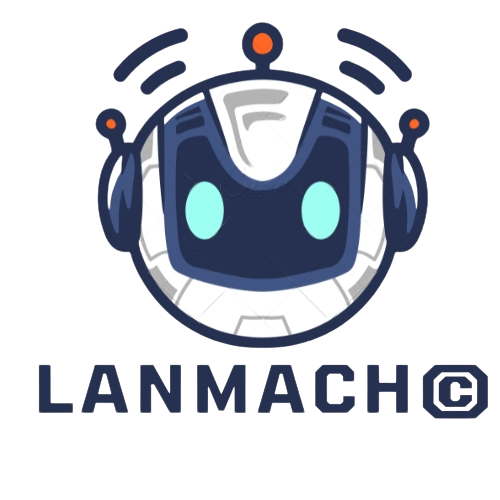

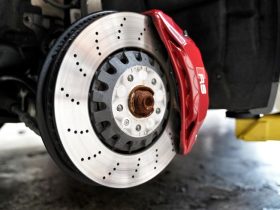
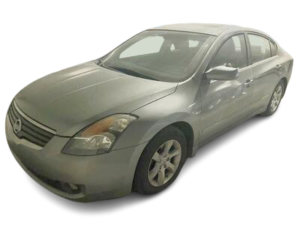
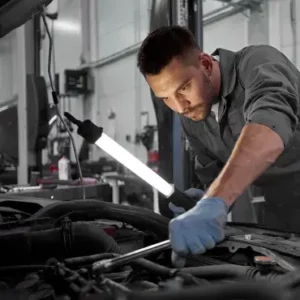
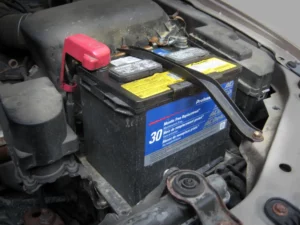
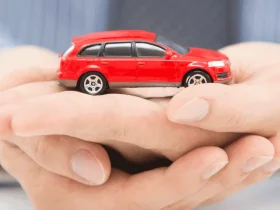
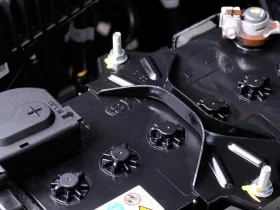




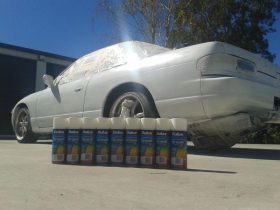
Leave a Reply